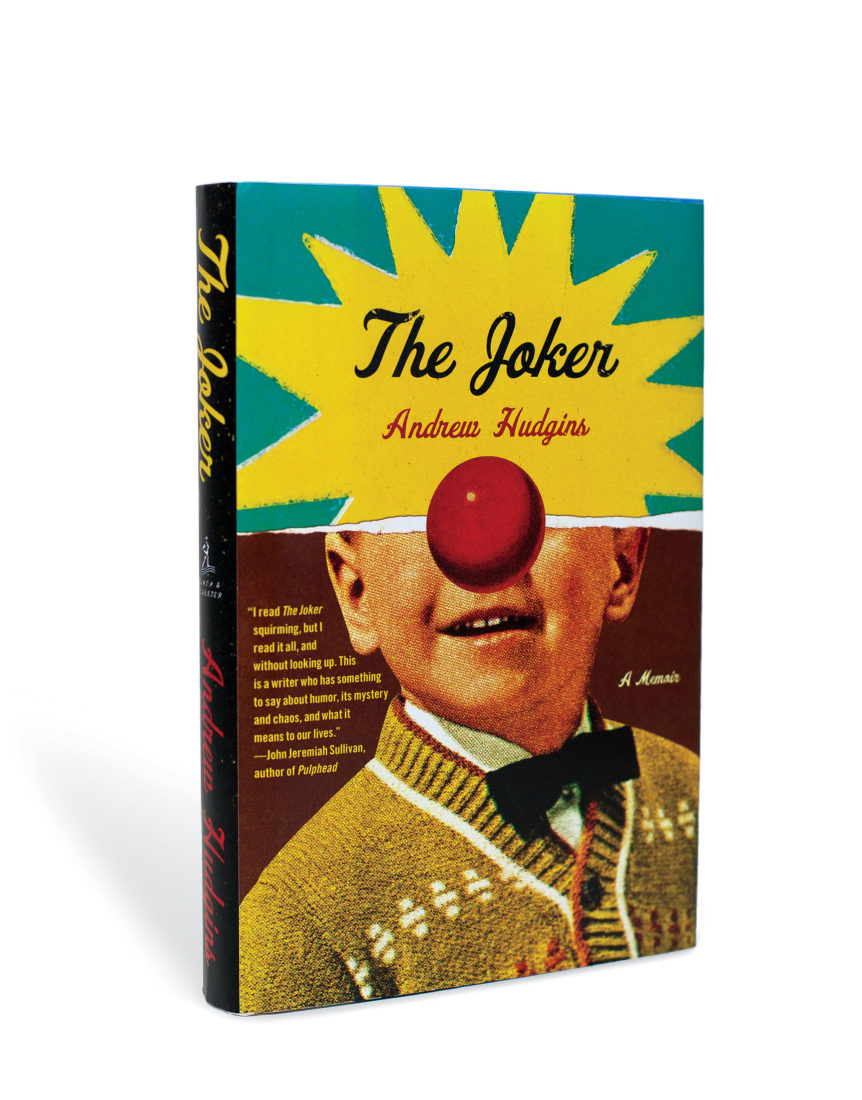A quote from The Joker: A Memoir, by Andrew Hudgins, reflects my experience exactly: “This is what my parents told me about sex: nothing. Not one word. Ever.” This similarity in my and the author’s Southern upbringings (we were both also, it turns out, members of the Royal Ambassadors—a kind of Southern Baptist Boy Scout organization) is not surprising to many of us born in the middle of the last century, before info about sex was so handy (so to speak). Those of you born later, or to parents who openly discussed sex, probably did not feel quite the jolt that we did upon being exposed (so to speak) to those first jokes about sex.
Why would a joke about sex, death, or religion pack power? Hudgins discusses and analyzes fears, tensions, psychological facts, and human needs (and seeds) that lead to reflexive bursts of laughter. Along the way we learn a lot about the inner Hudgins, about his parents, lovers, wives, friends, acquaintances, schoolmates who bullied him, his self-doubts and fears. We see inside his family, inside certain aspects of Southern religion. We grapple with racism, the self-righteous arrogance and feelings of superiority that produce it.
And why would racist jokes be included in this book? Because Hudgins is compelled to tell all, and I do mean all. He is as interested in jokes that make us raise an eyebrow, turn, and walk away as he is in those that put us on the floor, laughing. In his view, if it’s out there, it deserves examination—because it’s out there. He is not unlike a frenzied medical researcher examining every living cell he can find. His interest is in cells, cancerous or not, that live. I hate some of the jokes in his book, but I quickly came to realize that the Hudgins in these pages functions as both scientist and humane, funny man. (He is also, I must note, a great American poet—one who makes a reader hunger for more and more good poetry. Google “Andrew Hudgins his wife poem” and see for yourself.) The Joker taught me to think in new ways in part because Hudgins is not subtle. He doesn’t touch the knee to make it jump. He hits it. He could have written a more subtle book, one that pulls punches—a somewhat dishonest, conventional treatise that would keep readers in a comfort zone. I’m glad he didn’t do that.
Here’s a joke: So, this guy, Bill, who had a weakness for alcohol, owned a Chihuahua named Junior. Bill was crazy about Junior—took him everywhere. They were out walking one hot sunny day, Bill in sunglasses, holding Junior’s leash. They passed a bar, Bill paused, backed up, started into the bar with Junior, then read a sign by the door, “No dogs allowed.” He stopped, Junior sat, and Bill looked down at Junior. Junior looked up at him with his big round eyes. Bill said, “What the hell, let’s go on in.” Inside, the bartender shouted out, “Stop! No dogs allowed.” Bill said, “Naw, man, this is my Seeing Eye dog.” The bartender said, “A Chihuahua Seeing Eye dog?” Bill said, “Damn! They gave me a Chihuahua?”
If you just laughed (or if you didn’t), Andrew Hudgins could hold that joke up to the light as if he were inspecting a stone, maybe a precious stone, and he could analyze, explain, touch on variations of the joke that are insensitive, or not funny to him.
This book is a shot across the bow of contemporary thought. If we’re lucky, it will stir up an American dialogue about all kinds of fascinating, lurid, confounding, important subjects that reside in the great undertow of jokes (“toys made of words”).
You are probably used to a memoir different from this one—but this is an important book by a Southern writer who follows jokes where they lead.
If you are extremely politically correct and/or always put off by profanity, you will want to stay home on this one and do whatever you do at home that’s fun. But I wish you wouldn’t. I wish you’d take the plunge. The water warms up real quick.








